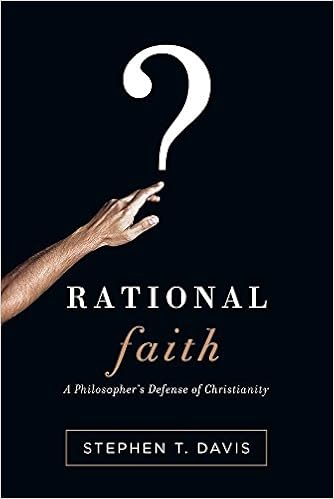
Editor’s note: This post originally appeared on Think Apologetics. Tabernacle of David considers this resource trustworthy and Biblically sound.
.

Christian Philosopher Steven. T. Davis makes this interesting observation in his book Rational Faith: A Philosopher’s Defense of Christianity. He says:
“ Now I want to argue that this world is the sort of world we would expect to exist if it were created by God. But let’s say that God’s central aim in creating human beings is that as many of them as possible come freely to worship, love and obey God. Now let’s ask this question: In order to achieve those ends, what sort of world would God create? I think we can see that it would have four main characteristics.
First, it would be a coherent and rational world. That is, events in it would be, for the most part, regular and lawlike rather than chaotic or random. In this way God would be creating a world in which human learning and science are possible, in which humans can use their God-given rational faculties to attain knowledge.
Second, it would be a world in which the evidence for the existence of God is ambiguous. Of course, God could have made his own existence as obvious to us as the existence of rocks and trees. God could have made his desire that we worship, love and obey him as obvious as our own desires are to us. But if God had done that, it would have resulted in a world in which we were not rationally free to say no to him.
Third, it would be a world of moral ambiguity. That is, God must not create a world in which wrongdoing is immediately followed by punishment or virtuous acts by rewards. It must be a world in which people can sometimes do selfish and immoral deeds with impunity. If not, our moral freedom rationally to do wrong would be removed. It must also be a world in which humans must face challenges, risks, dangers and problems. Both disaster and success must be real possibilities. We can see this point by imagining a utopian world. Let’s conceive of a world in which human beings experience no pain or suffering, w world entirely plastic to our wishes. I think creating such a world would be inimical to God’s purposes; God’s desires for us would be thwarted. For one thing, humans in a utopian world would have little sense of what is morally right and wrong, and little feeling of obligation to do what is right. This is because our sense of what is morally wrong is closely tied to causing other people needless pain. More importantly, in a utopian world, human beings would sense no need of God—no need of divine guidance or protection or forgiveness.
Fourth, it would be a world in which humans long for redemption and in which redemption is possible. That is, humans would have a certain longing for God. Maybe it would be somewhat vague; certainly it would be resistible, but it would be there, almost as “a still, small voice.” And God must create a world in which when humans go wrong, God makes it possible for them to be forgiven and placed on the right path. Now the interesting point is that I seem to have been describing this world, the world we live in.”- Steven T. Davis, Rational Faith: A Philosopher’s Defense of Christianity (Veritas Books), pgs 30-32.

